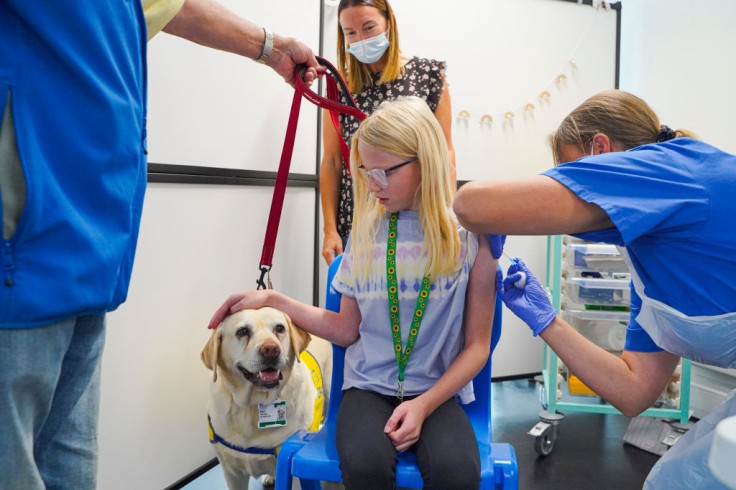
Respiratory syncytial virus (RSV) has been one of the threats to children's and vulnerable adults's hospitalization across the country.
After numerous years of developing a vaccine against it, the breakthrough RSV vaccine, both for infants and adults, has been approved and is already rolling out to the public to those who wish protection.
However, doctors across America have been experiencing mixed reactions from their parents, displaying vaccine hesitancy amidst the present supply chain challenges.
Breakthrough RSV Vaccines for Infants and Seniors
Following decades of relentless efforts, RSV vaccines are now accessible for adults aged 60 and older, alongside pregnant individuals between 32 and 36 weeks gestation.
Simultaneously, an injectable monoclonal antibody shot designed to shield infants aged 8 months and younger, along with high-risk children under 24 months, has entered the market.
These advancements have garnered anticipation within the medical community, fostering the belief that they hold the potential to revolutionize RSV prevention.
Despite the optimistic outlook, doctors nationwide report varied responses from their patients.
Infant immunization and elderly vaccination from RSV have been hampered with supply chain problems. At the same time, some parents and adults are expressing their doubts about the protection the vaccine can provide.
A professor of pediatric infectious diseases at the University of Chicago Medicine Comer Children's Hospital, Dr. Allison Bartlett, expressed that there are disappointing numbers of families choosing to refuse infant immunization for RSV.
This is especially saddening knowing the efficacy and protection the vaccine can give, knowing that most children acquire the disease before their second birthday. Although it is worth noting that there are also parents who have expressed interest in vaccinating their children against RSV.
RSV Vaccine Hesitancy
Healthcare experts believe there are several reasons for the uneven uptake of immunization.
First, some parents expressed apprehension about the vaccine since it is new, despite the thorough study conducted and the date confirming its efficacy.
Awareness of the vaccine's availability is another factor, alongside the phenomenon of shot fatigue, a result of the lingering impact of the COVID-19 pandemic.
Dr. Eric Biondi, Associate Chief Medical Officer for the Johns Hopkins Children's Center, notes a lack of inquiries about the RSV immunization, indicating potential hesitancy or a lack of awareness.
Furthermore, supply chain issues play a pivotal role in hampering immunization efforts.
High-level meetings between Biden administration officials and RSV immunization manufacturers, including Sanofi, AstraZeneca, and Thermo Fisher, underscore the urgency to address the alarming shortage.
Sanofi, a key manufacturer of the newly introduced Beyfortus monoclonal antibody shot, acknowledges "implementation barriers" and commercial payer coverage issues that have outpaced demand.
As of December 2023, a CDC survey revealed that only 28% of mothers with infants under 8 months opted for the RSV shot, highlighting the need for improved awareness and accessibility.
Hopeful Future Amidst Supply Chain Challenges
Despite prevailing challenges, healthcare professionals maintain hope that increased awareness and rectified supply chain issues will lead to higher adoption rates in the upcoming years.
Dr. Bartlett anticipates more in-depth conversations with parents, emphasizing the real-world implications of the monoclonal antibody shot, with the overarching goal of reducing RSV-related hospitalizations among infants.
In conclusion, the availability of breakthrough RSV vaccines and monoclonal antibody shots marks a significant stride in preventing the severe impacts of this respiratory virus.
However, surmounting vaccine hesitancy, addressing supply chain challenges, and bolstering public awareness are pivotal in ensuring widespread adoption and, ultimately, reducing hospitalizations associated with RSV infections.